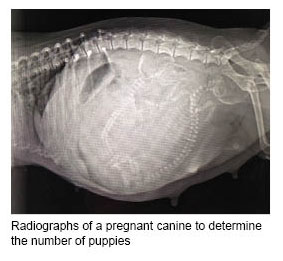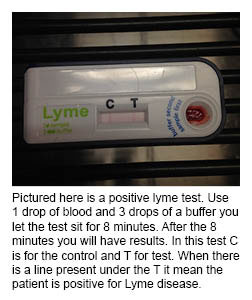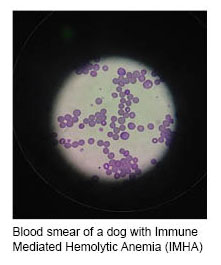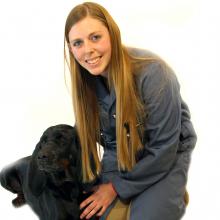Diagnostics are so important in the medical field, especially in the veterinary field where our patients cannot tell us what is bothering them. As veterinarians we can gather the information for the client about how their pet is acting to help narrow down what tests we can run to help pinpoint a diagnosis.
I am very fortunate that my externship clinic has a wide array of diagnostic tools. One of the most used machines is the digital x-ray machine. This allows the doctors and technicians to easily and quickly take and review radiographs. We’ve seen everything from fractured legs to pregnancy checks. Having multiple doctors in the clinic is a great way to learn. They are around to help with interpretations and talk through cases.
 Being located on the east coast, Lyme disease is very prevalent. The clinic offers an in house Lyme test that takes 8 minutes to run. This test can tell us if the patient is Lyme positive or negative. If a patient comes up positive, the doctors will prescribe an antibiotic for 28 days. This test is quick and easy and allows veterinarians to diagnosis and treat this potentially debilitating disease early.
Being located on the east coast, Lyme disease is very prevalent. The clinic offers an in house Lyme test that takes 8 minutes to run. This test can tell us if the patient is Lyme positive or negative. If a patient comes up positive, the doctors will prescribe an antibiotic for 28 days. This test is quick and easy and allows veterinarians to diagnosis and treat this potentially debilitating disease early.
 Having in-clinic bloodwork machines makes it simple to get bloodwork results back. Doctors and technicians can draw blood and have the results within 15 minutes. There is no need to send out samples and wait a day or two to get the results back. These in house machines are great for emergency situations and situations where we just need to monitor a patient. Black Horse Animal Hospital currently has a Complete Blood Count (CBC) machine and a Biochemistry machine which are used for many different situations.
Having in-clinic bloodwork machines makes it simple to get bloodwork results back. Doctors and technicians can draw blood and have the results within 15 minutes. There is no need to send out samples and wait a day or two to get the results back. These in house machines are great for emergency situations and situations where we just need to monitor a patient. Black Horse Animal Hospital currently has a Complete Blood Count (CBC) machine and a Biochemistry machine which are used for many different situations.
Black Horse animal hospital has a progesterone machine which helps determine when a dog is ready to give birth, naturally or C-section. This machine is not typically found in many hospitals, but Black Horse works closely with owners to make sure their dogs are ready for C-sections or not. The progesterone machine uses a blood sample and takes about 45 minutes to run.
 Another mainstay in any clinic is our microscope. We are able to look for parasites in stool samples, read ear cytology for patients with ear infections and interpret urine and blood. Common parasites we find in stool samples are round worms, coccidian and giardia. When looking at ear cytology’s, we count yeasts and bacteria to best determine which treatment will be most effective. For urine cytology’s we look for bacteria, crystals and urine casts to name a few.
Another mainstay in any clinic is our microscope. We are able to look for parasites in stool samples, read ear cytology for patients with ear infections and interpret urine and blood. Common parasites we find in stool samples are round worms, coccidian and giardia. When looking at ear cytology’s, we count yeasts and bacteria to best determine which treatment will be most effective. For urine cytology’s we look for bacteria, crystals and urine casts to name a few.
Diagnostics are extremely important and beneficial in the veterinary world. Getting hands on experiences at Black Horse Animal Hospital has helped improved my skills in all these areas.
